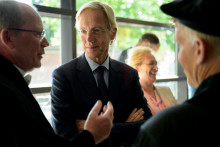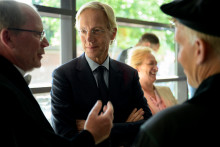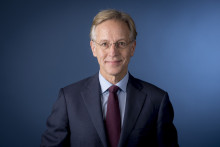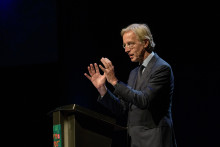The parties in the House of Representatives had all kinds of questions about the ‘administrative agreement’ that Minister Dijkgraaf concluded last year with the higher education institutions. About internationalisation and the main language of instruction, for instance. He answered those questions on Wednesday.
The agreement states that universities will put a focus ‘on retaining Dutch as the academic language among students’, both in Bachelor’s programmes and Master’s programmes. They will also make room for multilingualism in the teaching, ‘in programmes in which it is relevant’.
Relevant
The CDA wanted to know more about that. What programmes does the minister believe are relevant when it comes to retaining Dutch as the academic language? And are we talking only about retention or also about an increase in teaching in Dutch?
Dutch as the language for teaching, academia and academic communication is relevant throughout higher education, Dijkgraaf replied. He agrees with the CDA ‘that Dutch (or, if need be, multilingual) teaching ought to be the standard in more study programmes’.
He does have one reservation. ‘Of course we also have to bear in mind that some study programmes expressly target the international labour market.’
Letter
He couldn’t say more than that. He promised the House of Representatives that he would send a letter about managing the intake of international students no later than in May. ‘In that letter I will give specific details about the language of instruction.’ In fact, that letter has already been delayed a couple of times.
Critics fear that institutions will recruit students from abroad because of funding. That income is also alleged to be the reason for the anglicisation of university teaching, at the expense of Dutch language proficiency.
The institutions reject the accusations and are of the opinion that the intake of students from abroad actually benefits the quality of the teaching. Another argument is that English is the international language of academia.
Additionally, in some sectors, such as technology, there is a shortage of graduates. It would be good for the economy if international talents were to remain in the Netherlands after an education in the deficit sectors.
Figures
According to the universities, 53 percent of the Bachelor’s programmes are taught in Dutch and only 29 percent entirely in English. The remainder use more than one language of instruction.
In particular, study programmes in the domains of healthcare and law are generally still taught in Dutch, while the majority of the teaching in technology and economic is in English.
In Master's Programmes only 14 percent of the teaching is entirely in Dutch. Law (54 percent) and healthcare (35 percent) are once again the exceptions.







